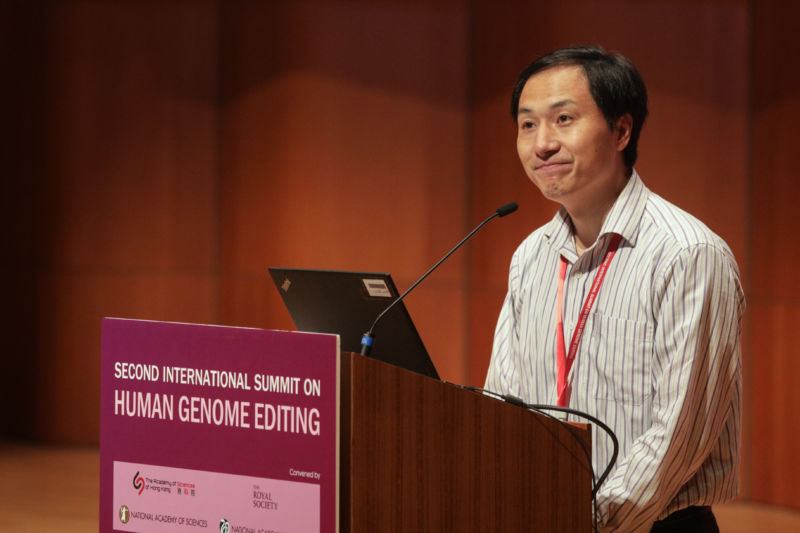Target of first human gene editing cuts life expectancy short

Enlarge / Chinese geneticist He Jiankui speaks during the Second International Summit on Human Genome Editing at the University of Hong Kong days after he claimed to have altered the genes of the embryo of a pair of twin girls before birth, prompting outcry from scientists of the field. (credit: S.C. Leung/SOPA Images/LightRocket via Getty Images)
Late last year, a Chinese researcher shocked the scientific community when he announced that the first gene-edited humans had already been born. He Jiankui barreled past an emerging consensus that the technology wasn't ready for use and, once it was, should be reserved for otherwise untreatable diseases. Instead of respecting those boundaries, He did much of his work without any clear institutional oversight.
Rather than target an incurable genetic disorder, He Jiankui focused on something for which we have both preventative measures and treatments: HIV infection. He did so by using CRISPR gene editing to damage a gene that encodes a protein that HIV uses to enter human cells; previous studies have shown that mutations in this gene protect against HIV infection. But the same mutation was already known to make humans more susceptible to other diseases, raising the question of whether the gene editing put its recipients at risk.
That question has now been answered with an emphatic "yes." Researchers have found that adults carrying mutations in the gene see their general mortality rise by 20 percent compared to their peers.
Read 11 remaining paragraphs | Comments